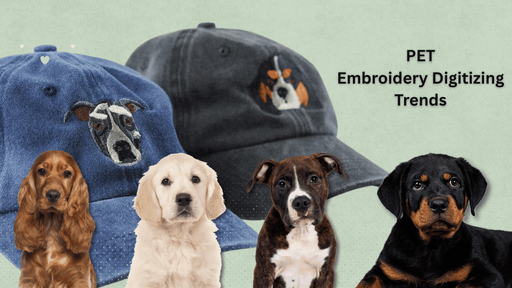Sharing pictures of your pets on social media is one of life’s greatest pastimes. Who doesn’t love an Instagram feed full of dogs, cats, rabbits, and a plethora of other beautiful creatures? It’s almost impossible to resist the urge to show off our furry friends to the world.
Beware that Posting Pictures of Your Pets Can Be a Cyber Risk
We rarely think about the implications that could come from sharing pictures of our pets on social media. However, a seemingly benign and harmless act can actually have serious consequences. Believe it or not, pet photos can be a target for scammers, fraudsters, or cyber criminals. How? That’s what this guide is here to educate you about. It’s one thing to understand keeping you and your pets safe from physical crime, but cybercrime is a whole different story.
What Can Cyber Criminals Possibly Exploit From a Pet Photo?
You may be wondering how it’s even possible for cybercriminals to understand all there is to know about you via an innocuous photo of your pet.
Looking at this scenario objectively, it’s really no different than sharing information about yourself online which statistically increases your chances of being scammed over the internet. Just why exactly would a hacker be interested in you out of the estimated 4.59 billion people using social media? It basically boils down to being the easiest target.
Passwords and Security Settings
Users that are quite lax about their security settings, location data, and information about where they live, work, or study, can be prime targets for criminals lurking amongst your social media followers.
A recent survey by Santander UK, titled ‘Instagram to insta-scam’, highlighted how almost 90% of under 25 year olds have shared sensitive information on social media, including their personal contact details, family members and their pet names. To reiterate, while pet names can be quite universal in nature, they do also play a vital role in helping anonymous cybercriminals paint a virtual picture of who owns them.
Your pet’s name can also be used to your detriment, with many regular social media users using this information as part of their passwords. If the pet’s name isn’t in the password itself, it often forms an answer to backup security questions in the event of password recovery. According to data from Aura, nearly 40% of Americans use variations of their pets' names as passwords. This is not just the domain of the younger generation either, with 50% of pet lovers in the age range 35-44 taking exactly the same approach.
It’s similarly quite normal for pet owners to emboss their name or contact information onto their pet’s collar tags. While the intent behind this is not malicious, serving only to reunite lost pets with their owners, unfortunately, this information can easily fall into the wrong hands. In fact, you don’t have to be a skilled coder or developer to enhance image resolution enough to get the name, phone number or address of somebody via a pet photo.
Location Data
Looking outside of the realm of social media slightly, GPS pet trackers are now increasingly available to help owners keep track of their pets’ locations at all times. These devices connect directly to a pet’s collar, further providing a sense of safety and security from that pet being lost or stolen.
Despite this, some security experts exercise caution given that these devices are susceptible to hacking. There is evidence to suggest that some GPS trackers use BLE (Bluetooth Low Energy) which does not require authentication when pairing with a mobile device. Also, some tracker apps don’t verify the servers they connect to (in other words, using HTTP over HTTPS by default), which means sensitive data is not encrypted.
As a result, it can make apps prone to MITM (Man-in-the-Middle) attacks, where hackers can more easily intercept information passed over a server. To alleviate this, consider using GPS tracker apps that have been thoroughly tested for any vulnerabilities and ensure all data is encrypted.
How You Can Avoid Becoming a Victim of Fraud or Scams
With everyone so digitally connected nowadays, and with social media and technology firmly intertwined with our working, education, and personal lives, it’s evident that we need greater awareness of the cyber security risks of our actions that we wouldn’t think twice about on a normal day.
While it’s easy to condemn the wealth of technology at our fingertips, we must remember that valuable insight and advice are also readily available. As such, here are some basic security prevention tips that you can take to ensure you aren’t exploited by social media scammers or fraudsters.
Strengthen Passwords
The UK’s National Cyber Security Centre (NCSC) recommends making passwords with three random words. It made these recommendations as part of a governmental Cyber Aware campaign and also suggested that users install secure password browser extensions for storing this data. While Google Chrome has a built-in password manager, third-party apps also exist.
Use Two-Factor Authentication (2FA)
This might seem like an unnecessary step, but 2FA would provide a much-needed barrier of protection if your device were to be lost or stolen. This essentially means you verify who you are when using online services, such as online banking, email and so on. You can also consider biometric verification as a quicker alternative in some cases. It’s recommended that you set this up on all social media sites you use.
Review Your Profile Privacy Settings
You may want to limit who can follow you on social media. For instance, you may only want to keep your network locked down to those that you know personally. If you want to keep an open profile, you may want to look at limiting your geolocation data, not openly advertising your whereabouts or giving anything sensitive away openly.
Either way, go through your profile privacy settings and ensure that you are making the best decision about protecting yourself and your pets. Think about what you are posting to your followers and who has access to it. Carefully consider how much of your personal life you want to share with people who may not know you personally.
Buy Trusted GPS Trackers
It should go without saying, but if you are going to peruse the internet for high-quality GPS pet trackers, then make sure you do your research. Ensure that the software you’ll be using is legitimate and will not be exploited unethically. FitBark trackers are designed with security, convenience, and portability in mind. The technical specifications of the product are worth paying close attention to, so you can understand the real-time location tracking process, coverage, and compatibility of the technology.
By taking the above preventative steps, you’ll be able to post your pet photos freely and without worrying about who might use that for ill-gotten gains. Most importantly though, you’ll be taking big steps in ensuring the overall safety of you and your companion.


















